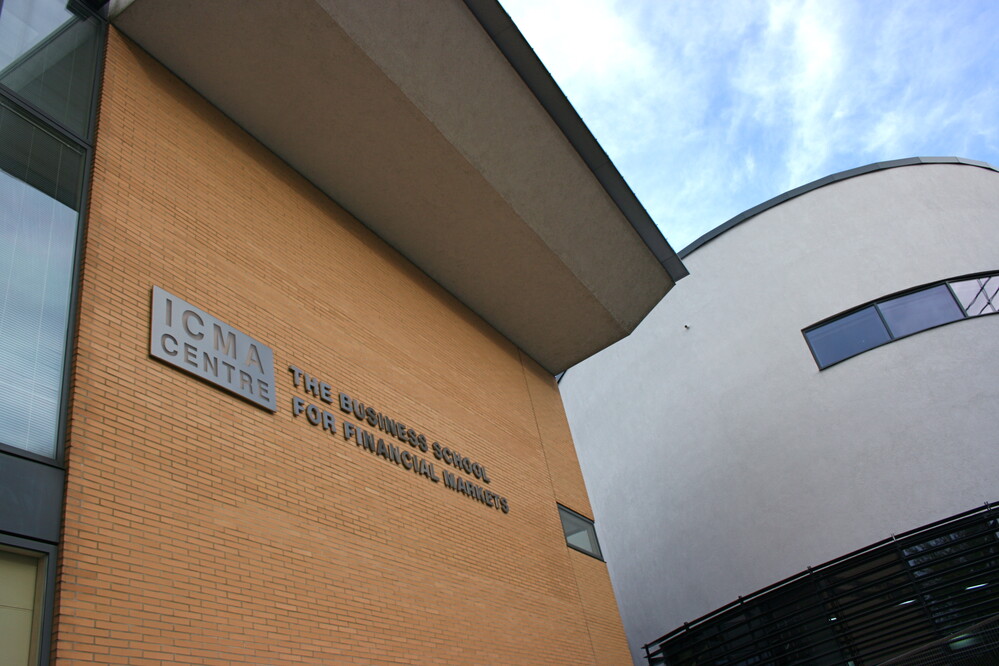
As the world grapples with the escalating impacts of climate change, it is imperative for the financial sector to adapt and contribute to sustainable solutions. External drivers such as regulatory pressures, investor demands for sustainable investments, and the increasing frequency of climate-related financial risks have highlighted the necessity for a productive dialogue that can lead to actionable insights and strategies.
With this in mind, the ICMA Centre at Henley Business School in September hosted its third annual Climate and Finance Conference, which brought together a diverse group of researchers from the University of Reading and other institutions to discuss the pressing issues and innovative solutions at the nexus of these two critical fields.
Here we examine the research that was presented at the conference, which provides an important overview of some of the most urgent questions around the financial implications of climate change.
Climate change and the stock market
As the impacts of climate change worsen, climate-related and environmental risks for equities are increasing. Emese Lazar and Shixuan Wang presented their research on how to measure these risks. They provided a framework that allows for the estimation of novel risk indicators such as Climate Value-at-Risk and Expected Shortfall, and discussed the equity sectors most affected by climate risk.
There are repercussions for financial analysts, too. A presentation by Kevin Seebonn (Leibniz University, Hannover) focussed on how analysists incorporate climate change into their buy/sell recommendations and price forecasts for single stocks. The study concludes that an increase in climate-related news correlates with lower price targets for companies negatively exposed to climate change. This suggests that analysts are factoring in climate risks when evaluating such firms.
Impact on firms
Firms are facing difficulties in global mergers and acquisitions activities due to climate change exposure. Yongyi Xue and colleagues examined these challenges, finding a negative relationship between a firm’s climate change exposure and its likelihood of engaging in mergers and acquisitions. This relationship is explained by increased financing costs and the level of cash holdings.
It is also important to explore how firms are behaving in the face of related challenges. Miriam Marra discussed how firms with poor biodiversity practices tend to disclose more about their biodiversity policies, particularly if they are riskier and financially unstable, in order to show commitment to biodiversity-responsible creditors. However, this increased disclosure does not necessarily lead to lower debt financing costs.
Resilience and sustainable growth
Banks will play a key role in the financial sector’s response to the climate crisis. Samuel Law and Andrea Miglionico presented their findings on how banks are adapting their lending to support climate resilience. They emphasised the necessity of a broader framework with diverse key performance indicators to effectively transition to sustainability-focused lending.
A global perspective on sustainable economic growth was offered by Alexander Mihailov in his presentation. He suggested a visual framework to keep track of sustainability at the country and regional levels, leveraging on the well-known climate or warming “stripes” developed at the University of Reading.
Windstorm and flood risks
Climate change will intensify patterns of severe weather, leading to increased financial risks for individuals, businesses and organisations. A presentation by meteorologist Dhirendra Kumar addressed the risks associated with windstorms and floods. It demonstrated that a simplified loss model for Europe can accurately represent windstorm losses, producing results comparable to those of vendor models and providing insights into future climate losses using climate model simulations.
Increased flooding could also lead to higher numbers of people being unable to pay their mortgage due to crippling costs of repairing flood damage. The financial strain of mortgage defaults in European flood zones was discussed by Simone Varotto, who highlighted the critical role of government support and payment relief measures adopted by lenders to limit mortgage default.
The financial cost of carbon
As the world transitions to a lower carbon economy, there are a number of associated risks which may pose varying levels of financial risk to organisations and businesses. These “Carbon Transition Risks” were the subject of the conference’s keynote speech by Professor Marcin Kacperczyk from Imperial College, London.
Professor Kacperczyk emphasised that transition risk is a fundamental factor in the decarbonisation process, serving as a means to estimate the financial cost of carbon. This cost can be viewed as a market-based measure akin to a carbon tax. He stressed the importance of consistency between the objective function and measurement in assessing these risks, and also pointed out that it is beneficial to consider risk as a forward-looking concept, which can help in better understanding and managing future uncertainties.
Despite the progress made, he noted that more research is needed to fully comprehend how transition risk interacts with financial markets and drives real economic changes. Additionally, he suggested that exploring the role of transition risk beyond equity markets and identifying its underlying drivers are promising areas for future research.
This insightful speech underscored the complexities and opportunities associated with managing carbon transition risk, highlighting the need for continued exploration and innovation in this field.
Complex challenges, innovative solutions
The discussions at the Climate and Finance Conference 2024 underscored the complexity of integrating climate considerations into financial decision-making. However, they also highlighted the innovative approaches being developed to tackle these challenges. Through meaningful dialogue of the kind facilitated by this conference, the financial sector will adapt to the challenges presented by climate change and contribute to sustainable solutions for future growth.
Simone Varotto is Professor in Finance in the ICMA Centre, Henley Business School and Programme Director of the MSc in Climate Change, Sustainable Business and Green Finance. He co-hosted the conference with Len Shaffrey, Professor of Climate Science at the University of Reading. Find out more about their research in climate and the financial system on the Climate and Finance Research Cluster website.
